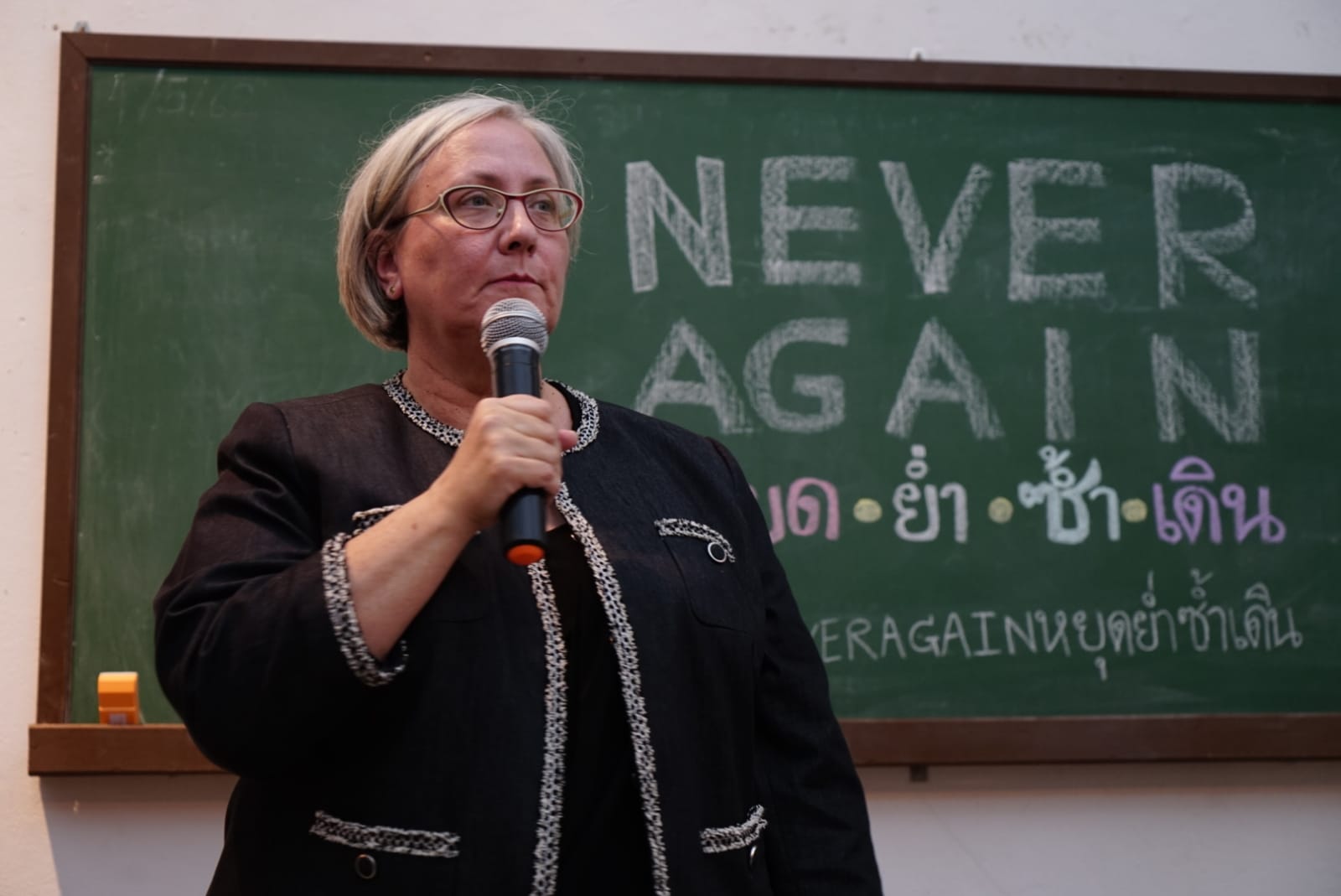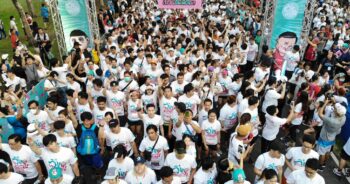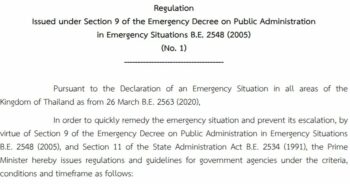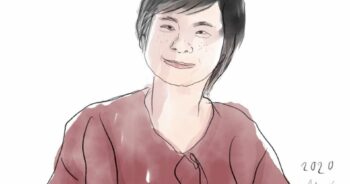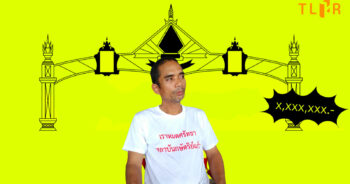On 10 August 2019, Thai Lawyers for Human Rights (TLHR) held the launching of its human rights exhibition, titled ‘Never Again: Seize, Trample, Repeat, Change’ at Chiang Mai University Art Center. The exhibition aims to point out the military vulnerability through everyday items which have become case evidence such as a red plastic bowl, a train ticket, or a calendar.
The opening started with an inauguration speech of H.E. Donica Pottie, Ambassador of Embassy of Canada. In addition to approximately 250 people joining the event, there were attendants from embassies including the Embassy of Germany, the Embassy of Sweden and the Embassy of Australia.
After that, Ms. Phattranit Yaodam, TLHR’s representative, presented some recommendations on the management of the NCPO’s long-term consequences on the Thai society in order to reconstruct the rule of law that would subsequently bring about the restoration of democracy. (See more at Five years under NCPO, isn’t that enough? Recommendations to eliminate the effects of the coup) The key recommendations include;
1. Amend and repeal laws which endorse the legitimacy of the coup d’etat and were tools of authorities to restrict and violate rights and freedoms of the people during the NCPO regime
2. Annul all court verdicts and judgements that endorse the legitimacy of the coup and grant immunity to the coup makers and their agents.
3. Guarantee access to justice and fair trial to those charged or prosecuted by the regime. These include the guarantee of independence and impartiality of the judiciary and end to military intervention in the justice system. There shall be no use of military jurisdiction over civilians. The information or evidence obtained during arbitrary detention of a person by military must not be used in a trial, or legal proceedings against the affected person.
4. Establish the “Inquiry Committee of the Patterns and Nature of the Exercise of State Power and the State of Human Rights during the 2014 coup”.
5. Reveal to public information and data collected by state authorities during the NCPO regime which have led to violations, harassment, threats and state surveillance of the people.
6. Provide remedies to people who have been affected by the use of powers of the military. Starting with defining the term of an ‘injured person’, categorizing and classifying the damage and levels of seriousness and severity of the violation. The remedies and compensation, which could be made through various means including: the government offering a public apology; compensation and damages
7. Bring the perpetrators to justice. At least, individuals or groups who ordered, created repressive policies, carried out the acts of violations and those assisting such violations must be identified and brought to justice.
8. Monitor the military’s role and its extended powers into or over civilian administration in all aspects, including any intervention in the legal system.
The exhibition will be displayed until 16 August 2019, opened from 9.00-17.00 at the Chiang Mai University Art and Culture Exhibition Hall.
